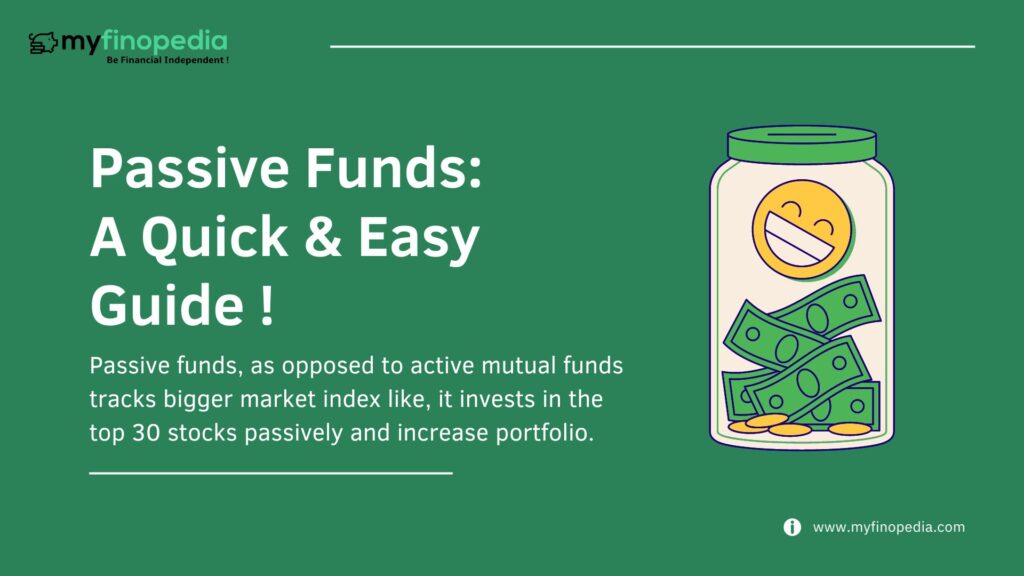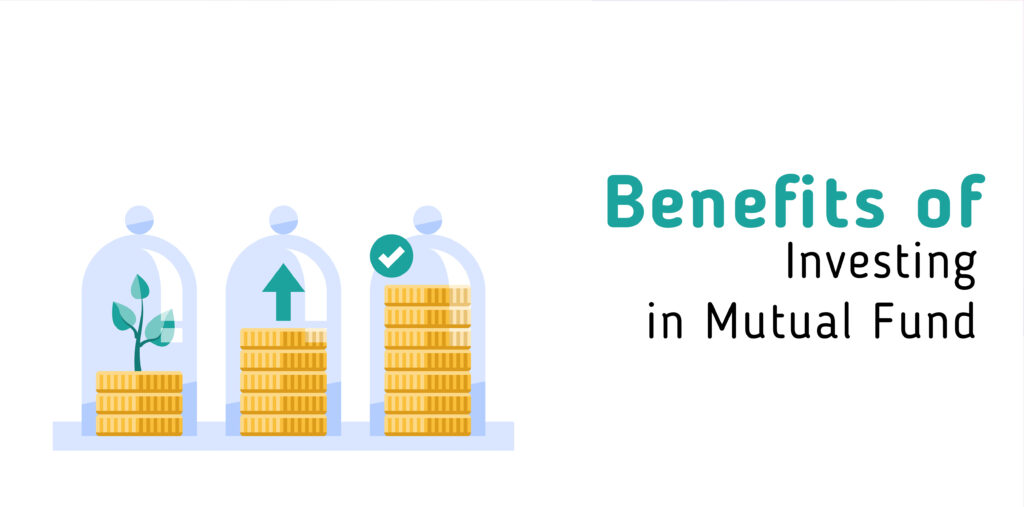In the recent years, passive funds has gained a lot of popularity in the global marketability. According to AMFI data, passive funds grew by all-time high CAGR 40% in the last 4 years.
Passive funds usually charge lower fees, in addition to conducting limited research than the active funds. There are different types of passive funds, which usually conducts lower research, yet gains bigger profit.
Let’s know about the different stages, benefits that passive funds have for retail investors.
Meaning & Works
Passive funds, as opposed to active mutual funds tracks bigger market index like, it invests in the top 30 stocks passively and increase portfolio. Therefore, it follows all the funds that is listed in the ideal index and gain profit from the ultimate performance in the passive role.
There is no secret of selecting stocks because they depend on the underlying indices of the potential funds. As a result, it less risky compared to active funds and do not outperform active counterparts. So, the fund managers play a passive role in the as a matter of low research and investment strategies in the driven by the objective of making profit through gaining the benchmark returns by replicating much as possible.
Types of Passive Funds
1. Exchange Traded Funds
Exchange Traded Funds or ETFs are funds which followed by the NAV index trades on various sectors replicating the original index like Nifty 50. The index performs better the ETF index also comes near to that making possible outcomes.
2. Index Funds
Index funds are sold and bought replicating the weightage of various index funds. The drawback of this funds are it’s tracking error which sometimes fails to handle the underlying changes of the index making it difficult to gain the profit from following the index.
3. Funds of Funds
Funds of Funds or FOFs usually targets more than one mutual funds based on the index, which don’t always have s tracking. In this index, the fund manager also plays appropriate role for deciding the allocation of the fund.
4. Smart Beta
Smart Beta funds are passively managed funds that follows a particular index in identifying best profit and tracks it to finds returns closer to the profit. The role of the fund managers are same as ETFs, only to replicate the indices of the underlying assets and make profits.
Advantages
Some advantages of passive funds are-
- It is less risky than active funds, since it invests in the curriculum followed by successful funds and consequently making the profit.
- It requires less investment as it a lower expense ratio, which ultimately makes the profit margins of the underlying assets beneficial.
- It does not require much research so you can track the funds and easily make returns by following the underlying benchmark.
Disadvantages
There are also disadvantage passive funds, which are as follows-
- It does not outperforms the benchmark indices, that’s why, its exposure is limited in market.
- It has some tracking errors that can negatively impact the funds’ performance.
- It is less flexible as far as the allocation concerned. It cannot reallocate or change them resulting to underperforming in the market slump.
Conclusion
Overall, passive funds are easier in terms of management and gaining substantial profits as long as tracking errors are ideal. It has lower disbursement of capital and gives close returns like active funds following the benchmark indices. Also, the tax policy is lower compared to active funds. So, interestingly it has more profitable options of turnover than that of active funds.






